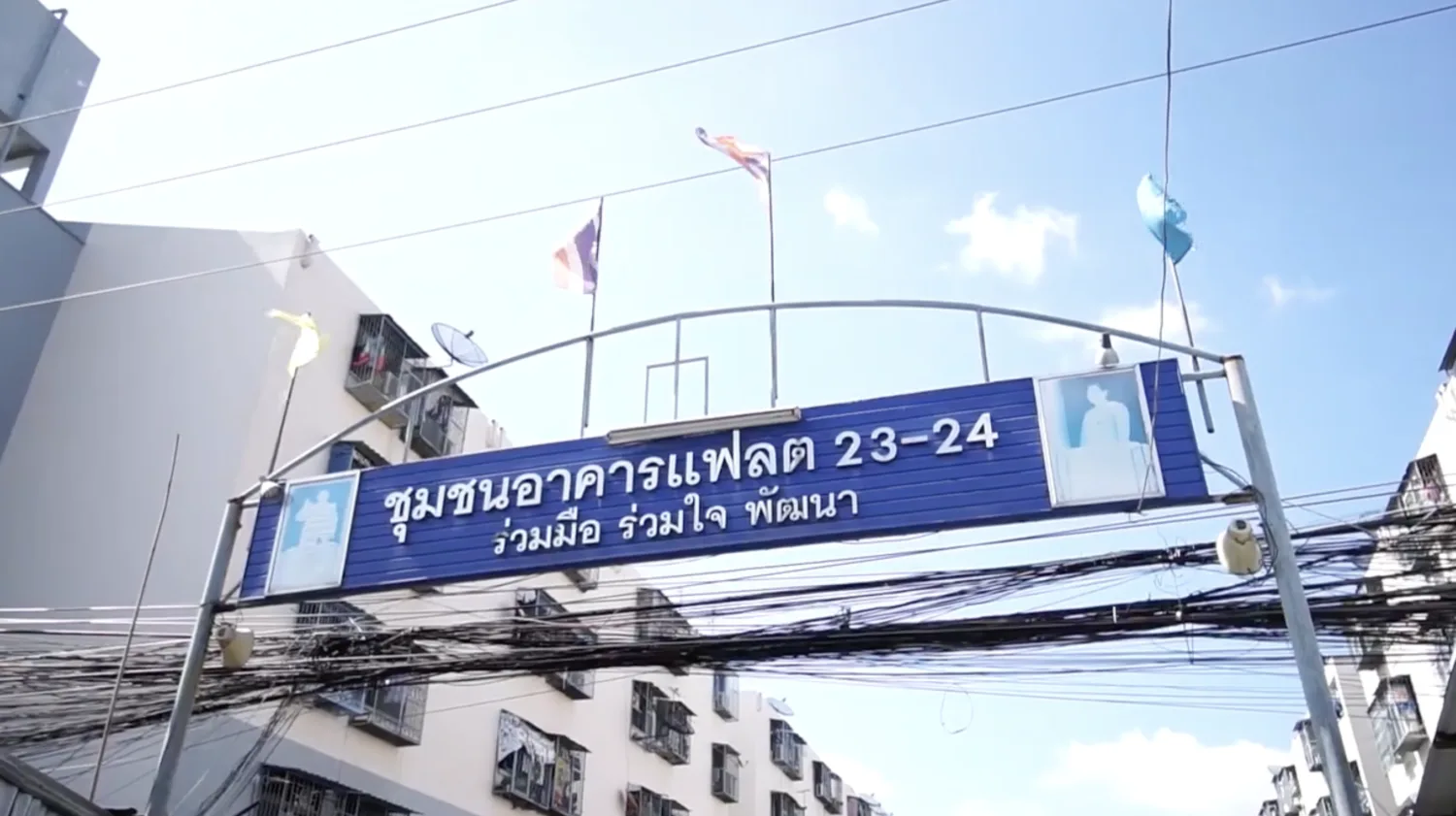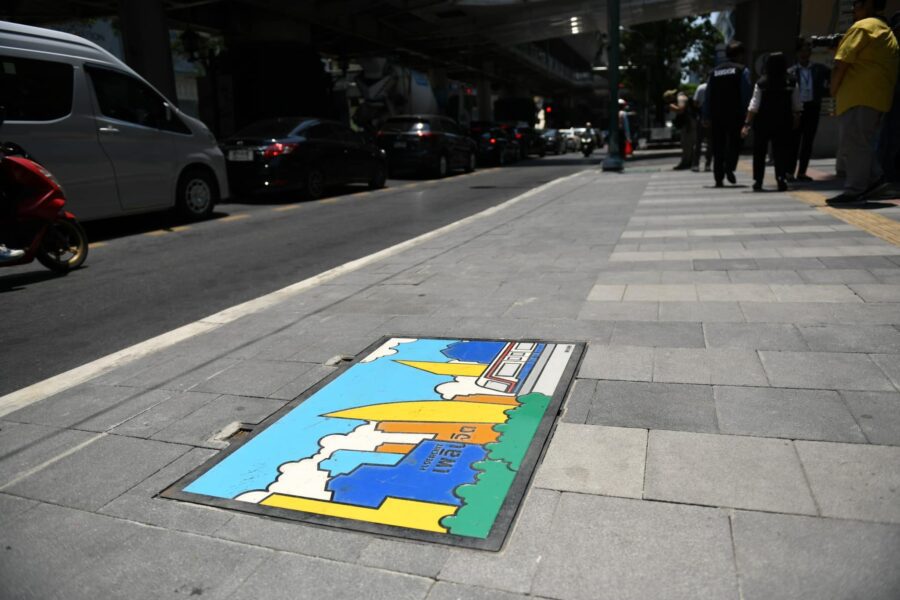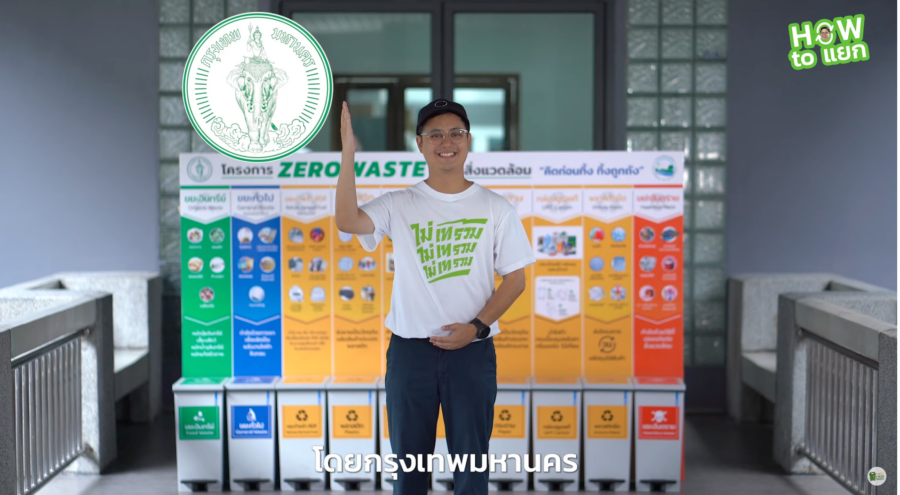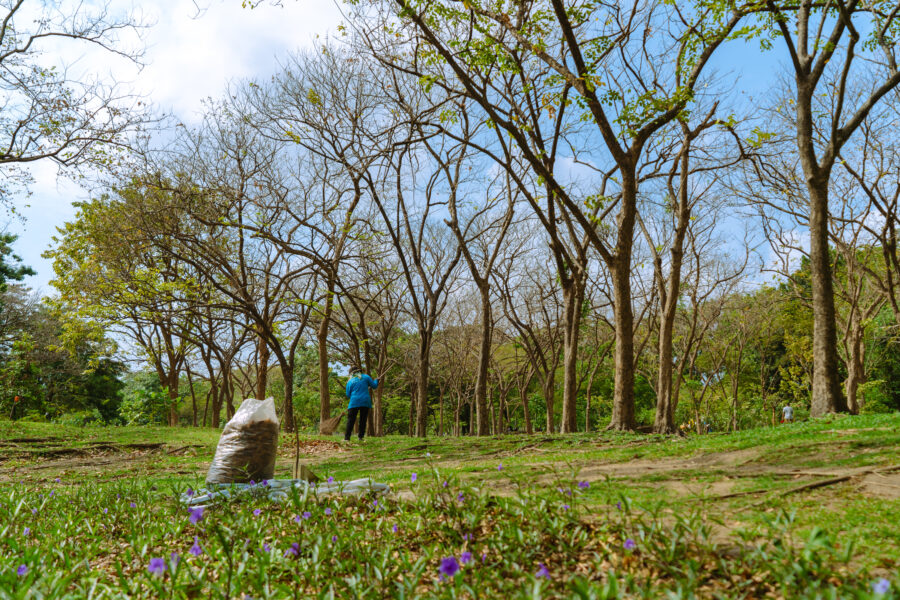The garbage problem in Bangkok's urban communities is an unsolvable problem due to many causes, such as the lack of waste separation at the source, transportation, and waste management. However, the most influential factor is probably behavior and the lack of knowledge about proper waste disposal and management.
However, many communities have now managed their waste in a comprehensive manner, which is a good example for other communities. What about crowded communities where people live together in buildings? How do they manage their waste?
Come and get to know Flat 23-24 Community in Khlong Toei District, Bangkok. It consists of two five-story buildings with 430 rooms, which are home to a total of 1,200 residents. Half are the original residents, and the other half are over 200 rental rooms. Most of them work in the trade, are general laborers, collect garbage, and are cleaning staff for the Bangkok Metropolitan Administration. However, they have been able to completely turn their waste management around in just three months.
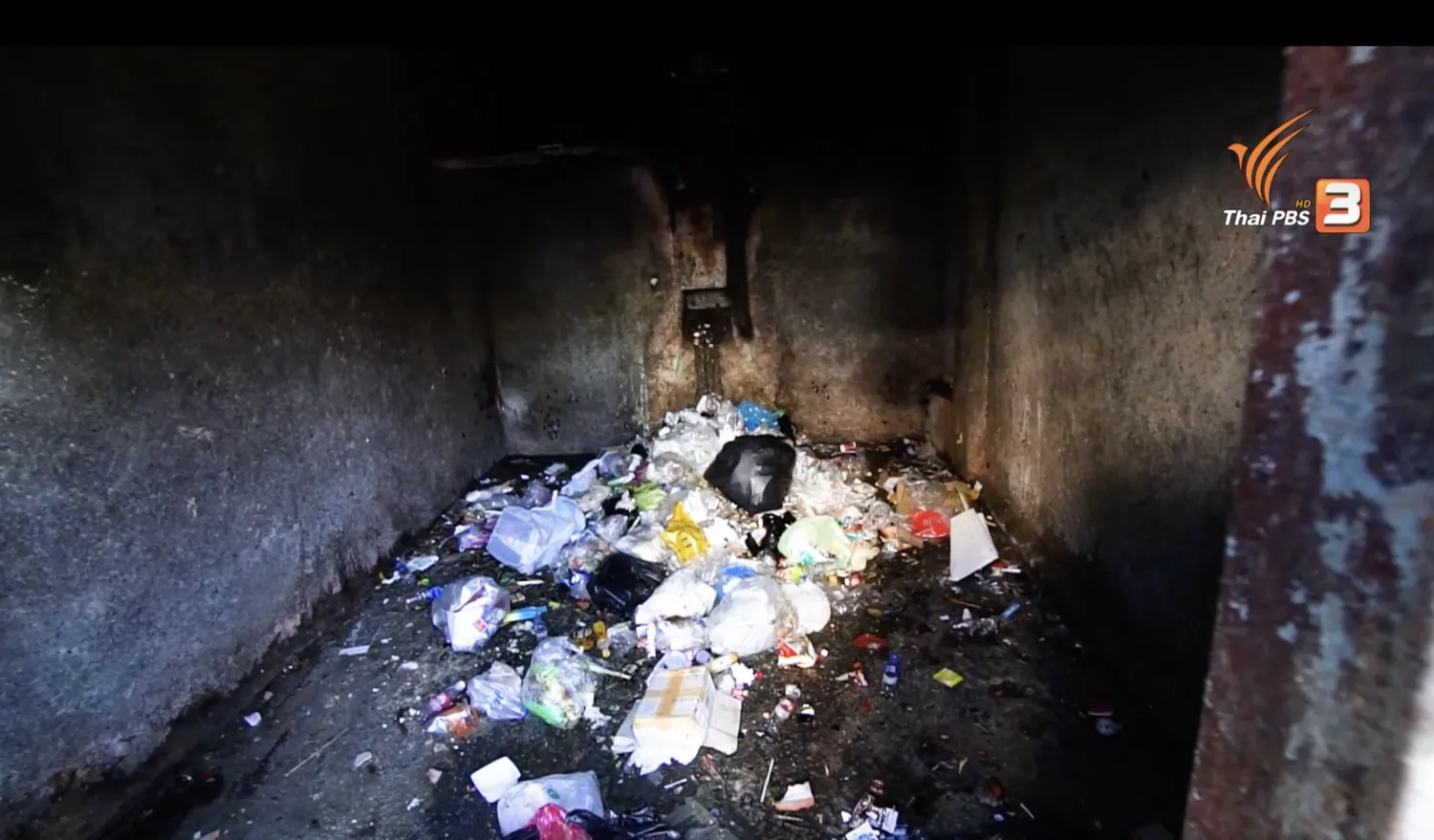
Garbage problem…no matter how much you solve it, it doesn’t work.
It's not that Flat 23-24 doesn't have waste management measures, because originally there were both waste sorting bins and a waste storage room. But with people moving in and out frequently, Khlong Toei Flats community has a constant flow of people. And with inappropriate management methods, creating cooperation in waste sorting has never been fully successful. As a result, the amount of waste coming from the waste chute in every corner of the building on every floor is still as much as 660 kg. per day.
The garbage that is thrown down through the chimney is piled up in the garbage receiving room, which can hold about 1 ton of garbage. Plastic bags, water bottles, and food scraps are tied together in bags without being separated. They are thrown from the chimney and piled up together, causing the garbage truck to have to go in and out at least 2 times a week, and the truck is always full.
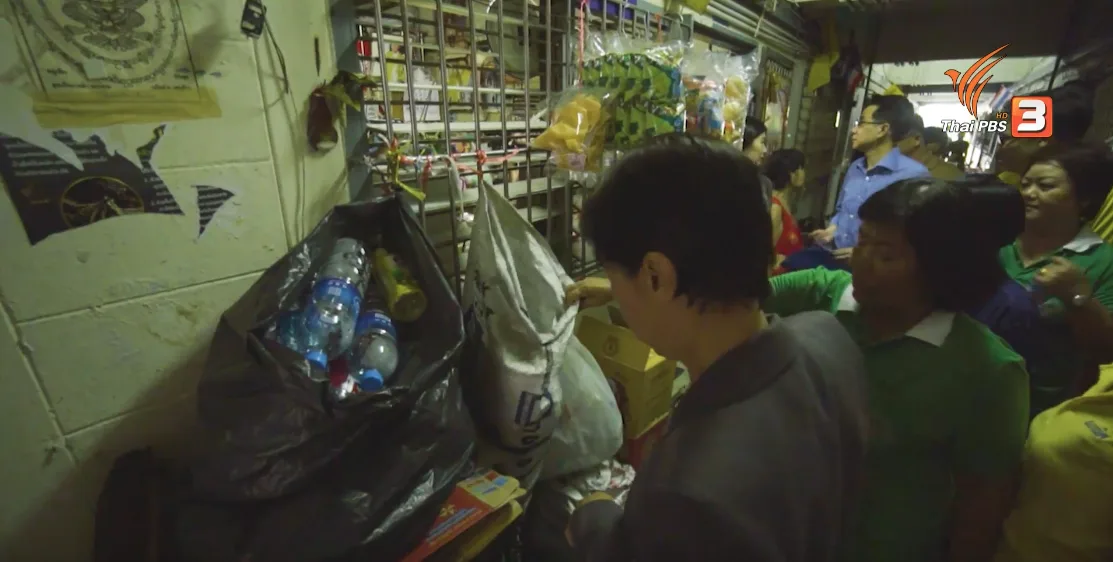
It's never too late to start over.
Another but most important problem that prevents cooperation from being successful comes frombehaviorThe insoluble problems of city people who are accustomed to creating endless garbage problems have led the community committee to work together to find a way to seriously manage this problem. In August 2019, Flat 23-24 community decided to join the project of waste-free communities towards sustainability, "Clean Buri Year 2", a project organized by the Department of Environmental Quality Promotion in collaboration with the Public Broadcasting Service of Thailand (Thai PBS) to help stimulate the community to manage the garbage problem effectively. The Koh Klang community, which has successfully managed garbage in a comprehensive manner, has come to be a mentor.
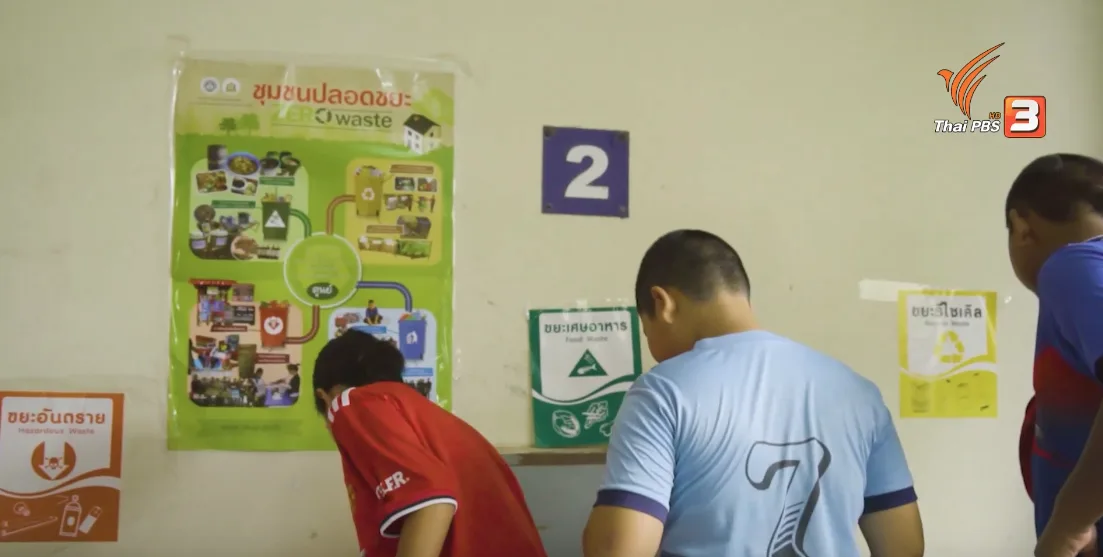
The easier it is to do, the more cooperation you will receive.
At first, the community created awareness among people in the flats by making announcements over the loudspeaker, explaining to people in each room, distributing documents, and preparing bins for each type of waste at the mouth of the chimney for sorted waste, including recycling bins (paper, plastic, glass), hazardous waste, and general waste. As for food waste, it can be thrown into the chimney as usual because the limitations of the urban community make it difficult to manage wet waste. They also invited youth in the community to join in the activities, but it was not very successful because the problem was the understanding of people in the flats.
This leads to a new strategy that anyone can do, by thinking in line with the behavior of city people who like to do things that are easy and fast. Therefore, it changed from separating 4 types of waste to leaving only 1 recycling bin and 1 hazardous waste bin. As for food waste and other waste, it can be thrown into the chimney to be passed on to the community committee for further management.
Recyclable waste can be separated and sold, but food waste is difficult to manage because the community does not have enough space to utilize it. Therefore, it was forwarded to the district to manage it, along with general waste and hazardous waste. Soon after, the people in the flats saw that it was easier to separate, so they did it without any problems, only separating dry and wet waste. Dry waste goes in the bin, wet waste goes into the chimney, which is considered a great success for the community.
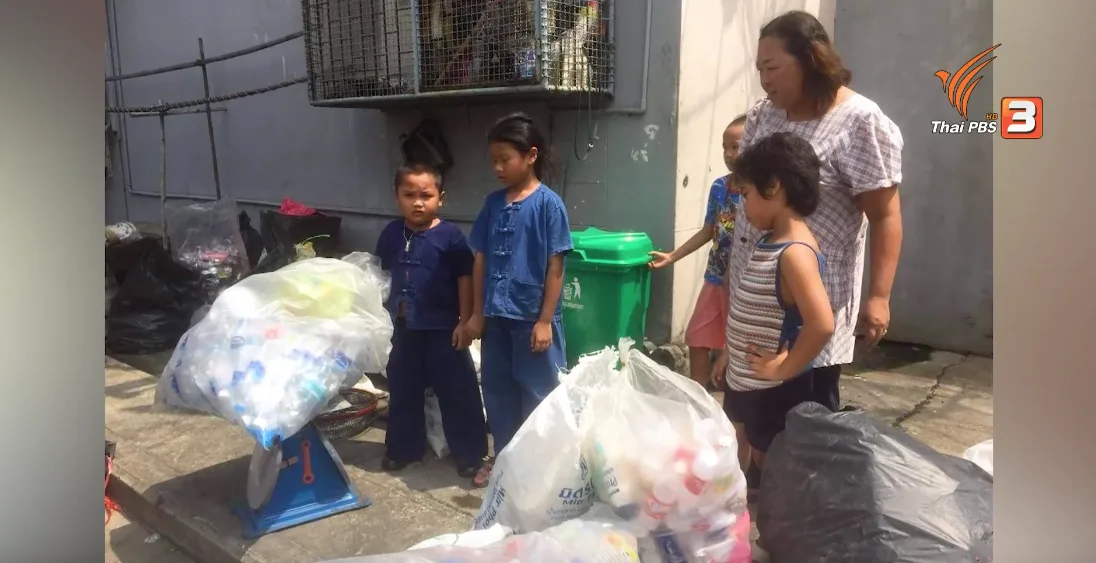
Everyone sees the value of separating waste regularly.
Regularly separating waste, even if it is simply sorting, but the consistency makes people in the flats know the value of waste because the sorted waste can generate income for the community. When everyone is aware, they start collecting and selling it themselves, which is considered another way to reduce waste. There is also a campaign with shops in the flats to reduce giving plastic bags when people come to buy things. Just this alone helps reduce both waste and changes the behavior of people in the community who unnecessarily increase waste.
From the haphazard disposal of mixed waste, everyone has turned to sorting the waste, and the amount of waste has also decreased. This is a proud success of the Flat 23-24 community. As a result of starting a new waste management for only 3 months, from August to October 2019, the community's waste that had to be buried more than 660 kg per day has decreased to only 430 kg per day, or a decrease of more than 34.85%.
Important lessons from Flat 23-24
- The method of waste separation must be appropriate for the target group. When it is easy to do, it will become a habit and eventually become a routine.
- A tangible example will make people in the community see the value of waste separation, which will lead to better cooperation.
- The strength of community committees is another important variable that cannot be missed because it will help drive the community to develop continuously.
Reference list
- Thai PBS (Thai PBS). (2019). Changing the city! Khlong Toei Flats reduced waste by more than 30% in 3 months.. Retrieved from https://www.thaipbs.or.th/news/content/286693
- Thai PBS (Thai PBS). (28 December 2019). The mission to conquer garbage is back and better than ever. [Video file]. Retrieved from https://www.thaipbs.or.th/program/SaArdBuri/episodes/66141.
- Thai PBS (Thai PBS). (11 January 2020). Collect trash more effectively than ever before[Video file]. Retrieved from https://www.thaipbs.or.th/program/SaArdBuri/episodes/66487.
- Thai PBS (Thai PBS). (18 January 2020). This city is free of waste.[Video file]. Retrieved from https://www.thaipbs.or.th/program/SaArdBuri/episodes/66507.






